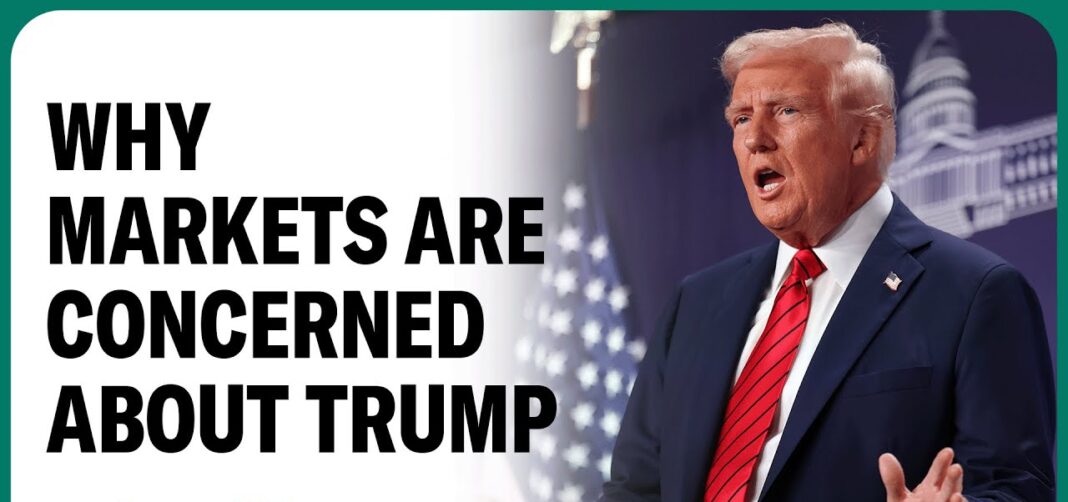Market Reactions to Trade Policy Shifts
Recent developments in U.S. trade policies have sent ripples across global financial markets. The announcement of new tariffs—25%, 10%, and 5% on various imports—has stirred investor sentiment, causing noticeable fluctuations in major stock indices. Initial reactions saw a drop of approximately 2% in key market indices overnight, with sectors such as technology and healthcare experiencing notable downturns. However, some consumer-driven stocks, such as McDonald’s, Walmart, and Costco, witnessed a surprising rally, reflecting investors’ continued confidence in domestic-oriented businesses.
The measures taken against Canada and Mexico also fueled economic debates. Canada, in particular, retaliated with its own set of tariffs, creating additional strains in North American trade relations. Meanwhile, Mexico’s response focused on tightening border policies, which some analysts suggest could be seen as a diplomatic compromise to ease trade tensions with the U.S.
Economic and Political Implications
The trade adjustments reflect a broader geopolitical strategy that aims to assert U.S. economic dominance while addressing longstanding concerns over trade imbalances. While some policymakers support these moves as necessary steps to ensure fairer trade, others argue that such tariffs could backfire, leading to increased consumer prices and supply chain disruptions.
China’s position in this ongoing trade dispute remains crucial. While Beijing initially refrained from escalating its retaliatory measures, market watchers believe that further tensions could result in heightened tariffs from both sides. The decision to target U.S. companies operating in China, such as major retail brands, could create additional pressure on multinational corporations reliant on Chinese manufacturing and consumers.
The Investor Sentiment and Stock Market Outlook
Investor behavior in response to these policies highlights the complexities of modern financial markets. The tech sector experienced mixed reactions, with some stocks initially dropping before rebounding after traders assessed the broader implications of these tariffs. Certain companies within digital infrastructure and data management industries emerged as potential safe bets amid ongoing market uncertainty.
Banking and financial institutions, including firms like Goldman Sachs and BlackRock, also saw significant investor interest. Analysts argue that these stocks remain attractive due to their stability and resilience in volatile market conditions. However, concerns over interest rate fluctuations and broader macroeconomic factors continue to influence investment strategies.
Future Economic Outlook and Potential Market Trends
The coming months will be critical in determining the long-term impact of these trade policies. If further negotiations between the U.S. and its trade partners, particularly China, result in concessions, markets may stabilize. However, if retaliatory tariffs continue to escalate, consumers and businesses could face prolonged economic uncertainty.
For businesses, diversifying supply chains and securing alternative trade partnerships may become necessary to mitigate risks associated with trade wars. Investors, on the other hand, may increasingly turn to recession-resistant stocks, such as healthcare and consumer goods, to hedge against market volatility.
Government policymakers will need to carefully balance national economic interests with global stability, ensuring that domestic businesses remain competitive while avoiding detrimental trade conflicts.
Conclusion: Navigating an Uncertain Economic Landscape
The ongoing shifts in trade policies underscore the unpredictable nature of modern global economics. While certain sectors may benefit in the short term, broader economic consequences remain uncertain. The key question moving forward is whether diplomatic negotiations will lead to long-term solutions or if further economic disruptions will persist.
Investors, businesses, and policymakers must prepare for a dynamic market landscape, adapting to emerging trends while remaining vigilant against potential economic downturns. As discussions continue, future trade agreements and policy shifts will determine the next phase of global economic development.
Disclaimer:
This article is based on publicly available financial and economic data and does not constitute financial or investment advice. Readers should consult professional financial advisors before making investment decisions.
Emily Shah is a financial writer and stock trader focused on ESG and technology stocks. Her insights regularly appear in leading investment blogs.




